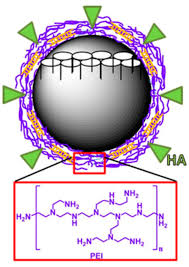Blog Post
What is a CD Marker on Cells? (Cluster of Differentiation)
The world of cell biology is vast and intricate, with countless mechanisms and markers that help define and differentiate between cell types. One crucial aspect of this complex system is the Cluster of Differentiation (CD) markers. These markers play a pivotal role in identifying and classifying cells, particularly within the immune system. In this blog post, we’ll delve into what CD markers are, their significance, and their applications in research and medicine.
Understanding CD Markers
CD markers are cell surface molecules that are recognized by specific antibodies. These markers are used to identify and differentiate between different types of cells, especially immune cells. The term “Cluster of Differentiation” refers to the grouping of these markers based on their reactivity with particular antibodies. Each CD marker is assigned a unique number (e.g., CD4, CD8) to denote its distinct identity.
The Discovery and Classification of CD Markers
The classification of CD markers began in the early 1980s when researchers sought a standardized system to identify cell surface molecules using monoclonal antibodies. The first International Workshop and Conference on Human Leukocyte Differentiation Antigens (HLDA) led to the establishment of the CD nomenclature. Since then, over 370 CD markers have been identified, each playing a unique role in cell identification and function.
Functions of CD Markers
CD markers serve various functions in the body, including:
- Cell Identification: CD markers are used to identify and classify different cell types. For example, CD4 and CD8 markers distinguish between helper T cells and cytotoxic T cells, respectively.
- Cell Signaling: These markers are involved in cell signaling pathways that regulate immune responses, cell growth, and differentiation.
- Disease Diagnosis: CD markers are critical in diagnosing diseases, especially hematologic malignancies. For instance, CD20 is a marker for B-cell lymphomas.
- Therapeutic Targets: Some CD markers are targeted in immunotherapies. CD19 and CD20 are common targets in therapies for B-cell malignancies.
Applications in Research and Medicine
CD markers are invaluable tools in both research and clinical settings. Here are some key applications:
- Flow Cytometry: Flow cytometry is a technique that uses antibodies against CD markers to analyze and sort cells. It is widely used in immunology, cancer research, and stem cell research.
- Immunohistochemistry: This technique involves staining tissues with antibodies against CD markers to visualize the distribution and abundance of specific cell types within a tissue.
- Clinical Diagnostics: CD markers are used in diagnostic tests for various diseases, including leukemia, lymphoma, and autoimmune disorders.
- Therapeutics: Monoclonal antibodies targeting CD markers are used in treatments for cancers and autoimmune diseases. For example, rituximab targets CD20 on B-cells and is used to treat non-Hodgkin lymphoma and rheumatoid arthritis.
Conclusion
CD markers are essential tools in cell biology and medicine, providing a standardized system for identifying and classifying cells. Their discovery and ongoing research have revolutionized our understanding of the immune system and have led to significant advancements in diagnostics and therapeutics. As research continues, the potential for CD markers in new applications and treatments remains vast and promising.


